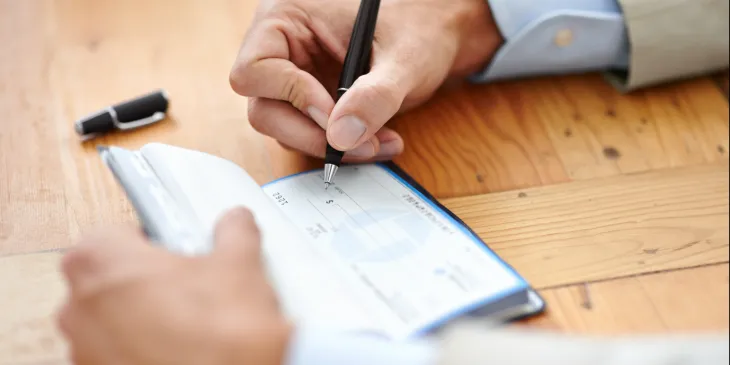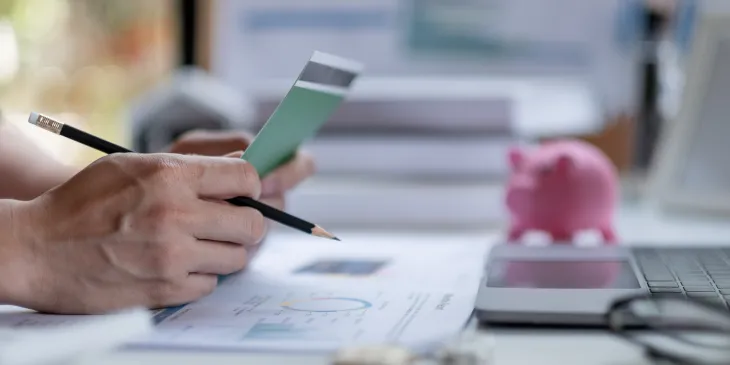
By: Sam Brown
Once you decide to buy something, you then must determine the form of payment you’ll use. Is cash easiest? Will you write a check? Or is your debit card the best way to go? Pros and cons exist for all methods of payment. Many of us decide quickly without thinking through potential fraud or payment protection.
From time to time, I come across customers who prefer to write checks instead of using a debit card to make their daily purchases. When I inquire why this is the case, it is almost always that they feel debit cards are too susceptible to fraud and identity theft.
When you get down to the basics, it really is the opposite when you compare the two forms of payment.
A debit card is a 16-digit number that is "tied" to your bank account. Other than your name, there is nothing specific about you or your account that someone else could use. As soon as a customer notifies their bank that their card has been stolen or that they have noticed fraudulent activity on their account, the bank immediately cancels that card— rendering it useless. That 16-digit account number is no longer valid. The customer then receives a new card with a new 16-digit number.
With a checking account things are much different. Your check contains very specific, vital information about you:
- Your Full Name
- Your Address
- Your Phone Number
- Your Bank's Name
- Your Bank's Account Number
- Your Bank's Routing Number
- Your Current Check Number
- Your Signature
There is a lot of valuable information that could be used by a criminal intent on stealing your identity or gaining access to your account. Most of the time when you write a check, you put that check in the hands of a stranger, such as a cashier at the grocery store or an accounts receivable person at your utility company. Quite often, this is where the fraud begins. All they have to do is make a copy of your check and they have everything they need. With the advancements in the quality of computer scanners and printers, fraudsters can make perfect copies of your check that include your exact signature. To make things worse, when fraud occurs on a checking account it typically requires that the account be closed and a new account with a new account number be opened. This can be very expensive and time consuming. For example, that box of new checks you just purchased is now useless.
I am not suggesting that debit cards are risk free. They can be compromised as well. However, there is a greater risk with check writing and potentially more serious consequences should you experience check fraud.




